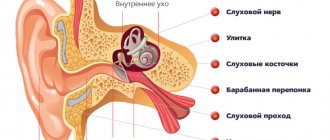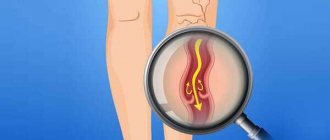Is it possible to get rid of varicose veins by taking venotonic drugs?
Every practicing specialist in the treatment of venous pathology can tell dozens, or even hundreds, of stories of patients who came to him after long-term conservative treatment of varicose veins of the lower extremities. A central place in such therapy is occupied by various oral preparations in the form of tablets and capsules.
Many drugs for the treatment of varicose veins
A huge number of doctors, including surgeons at public clinics, consider this treatment to be the only correct and promising one. Their patients have been trying to get rid of varicose veins for years, carefully following the doctor’s recommendations. Over time, new veins and various complications of varicose veins appear.
Varicose veins and pregnancy
Varicose veins of the lower extremities are dilation of the veins in the legs, accompanied by incompetence of the venous valves and disruption of their function. The valves located inside the veins are designed in such a way that they prevent blood from flowing in the opposite direction and if the veins dilate, the valve flaps diverge from each other and the blood begins to flow downward under the force of gravity. The disease is accompanied by a feeling of heaviness and pain in the legs, swelling, especially after static loads - long standing, sitting, lifting weights. In the initial stages of varicose veins of the lower extremities, swelling subsides after rest or a night's sleep; as the disease progresses, it may not go away even by morning. Cramps of the calf muscles and fatigue are also characteristic. It’s no secret that if you already have varicose veins, then pregnancy will aggravate the development of the disease. During pregnancy, there is no talk about treating varicose veins. All therapeutic measures are suspended, and we are only talking about preventing the development of complications.
Prevention of varicose veins during pregnancy consists of the following measures:
Therapeutic and preventive physical education, and if necessary, stay on your feet or sit for a long time - frequent warm-ups. Special sets of exercises have been developed. Wearing compression hosiery - knee socks, stockings or tights. The degree of compression is prescribed by the doctor. This is a very effective prevention and should not be neglected. Venotonic drugs are not recommended to be taken in the first trimester of pregnancy due to the fact that the effect of these drugs on intrauterine development has not been sufficiently studied. For special indications and in agreement with doctors - a gynecologist and phlebologist - these drugs can be prescribed in the second or third trimesters. Another nuance that phlebologists draw our attention to is planning pregnancy, taking into account the need to wear compression garments during it. The point is that it would be ideal if the late stages of pregnancy occurred in the cool season, when wearing special tights would not cause such inconvenience as in the summer. In addition, in cool weather, the likelihood of swelling is less. But of course, it is not always possible to follow this recommendation, especially if planning is delayed. Another situation is with varicose veins of the uterus and pelvis. It is sometimes called one of the reasons for the inability to get pregnant. This is due to impaired blood supply to the female reproductive organs - the uterus and ovaries. Unfortunately, the effect of varicose veins of the small pelvis on fertility has not been studied enough; recommendations are generally given similar to those for varicose veins of the legs.
What are the dangers of varicose veins during pregnancy?
Venous pathologies detected during pregnancy can lead to complications during pregnancy and during labor. The danger of congestion in varicose veins is the increased risk of thrombus formation and the development of thromboembolism at the time of childbirth. The pathology causes venous insufficiency, which cannot but affect the well-being of the pregnant woman and the health of the fetus. Varicose veins are a precursor to thrombosis, which can “block” the access of oxygen in the uterine bloodstream. This pathology leads to intrauterine death of the unborn child. A mild form of pathology does not have a negative effect on the fetus, but requires mandatory monitoring by doctors.
Diagnosis of varicose veins in pregnant women
Pathology can be suspected in two cases: visually notice an increase or protrusion of blood vessels in the legs, and evaluate the existing symptoms. In both cases, specialized diagnostics are required. During a routine examination, the gynecologist takes into account the patient’s complaints and, if necessary, sends her for additional examination to a phlebologist. It is important to pay attention to the fact that, starting from the 20th week of gestation and until the time of birth, fatigue in the legs is inherent in every second pregnant woman. But this is by no means a symptom of the spread of vascular pathology. Diagnostic manipulations will confirm or refute the suspicions of the pregnant patient. The main diagnostic methods are carried out only by an “expert” of veins - a phlebologist. To identify the cause, hardware methods are used: Ultrasound duplex scanning of veins (ultrasound of veins), in severe cases - contrast venography. In addition, the specialist will collect anamnesis, take into account complaints and recommend taking the necessary tests.
Compression therapy
Wearing therapeutic compression stockings is the main treatment for varicose veins in pregnant patients. Stockings and tights perfectly maintain pressure in the blood vessels, preventing them from bulging. The special fabric of the underwear allows air to pass through, so your feet do not sweat. Therapeutic knitwear restores the circulatory system and prevents the development of thrombosis. Compression products relieve inflammation and fatigue in the legs.
Drug treatment
To eliminate the pathology, topical medications are used. These are creams, ointments and special rubs. Preparations based on chestnut are popular. Popular remedies for varicose veins: Detragel, Lyoton-gel 1000 mg, Venolife. Heparin-based gels are used to reduce the risk of blood clots by thinning the blood to the desired consistency.
Recommendations for the prevention of varicose veins in pregnant women
To minimize the appearance or progression of varicose veins during the gestational period, it is necessary to follow preventive measures:
- Follow the diet of pregnant women, controlling body weight;
- Give preference to comfortable shoes;
- Reduce consumption of harmful foods;
- Take a walk every day with a fifteen-minute break;
- Follow a diet to eliminate constipation;
- Do not wear jeans or too tight trousers;
- To prevent protrusion of vascular walls with a hereditary predisposition to wear compression garments;
- Lead a healthy lifestyle without smoking tobacco or drinking strong alcoholic beverages.
Be healthy!
Make an appointment with a phlebologist
Phlebologist - Andrey Aleksandrovich Nisin
You can make an appointment by calling (391) 218−35−13 or through your personal account
Are modern tablets and capsules for the treatment of varicose veins really so ineffective?
The modern pharmaceutical industry offers a large selection of good and high-quality drugs for oral use in the treatment of varicose veins. These agents have significant and proven effects in the treatment of swelling, heaviness, venous pain, cramps and discomfort associated with chronic venous insufficiency.
Modern venotonic - Detralex
But do these drugs treat varicose veins themselves?
A pathologically altered vein is a hollow tube with thinned walls and non-functioning valves. The best treatment, in theory, would be organic restoration of the venous vessel with normalization of the valve apparatus. It’s just that irreversible degenerative changes have already occurred in the venous wall. Today, at this stage of development of modern medicine and pharmacy, there are no effective ways to restore varicose veins, either with the help of interventions or tablets and capsules. Work in this direction is underway, but its effectiveness still leaves much to be desired. Perhaps the dream of restoring a vein destroyed by varicose veins will come true in the coming decades, but we live not in the future, but in the present.
Venarus
Venarus (INN hesperidin + diosmin) is a combined venotonic and venoprotector from ZAO FP Obolenskoe (Russia). Reduces the distensibility of venous walls, increases venous tone, prevents stagnation of blood in the vessels of the venous bed, has a beneficial effect on capillaries (reduces permeability, increases elasticity, reduces fragility, makes them resistant to stress, normalizes microcirculation and lymph outflow). With regular use, it softens the clinical picture of chronic venous insufficiency (hereinafter referred to as CVI). If previously this disease was treated exclusively with a surgeon’s scalpel, today phlebologists have a number of effective drugs that have a beneficial effect on venous outflow, and Venarus is one of them. This drug has a pronounced anti-inflammatory effect, inhibits the adhesion of neutrophilic leukocytes to the walls of blood vessels, exerting a protective effect on capillaries. The combination of hesperidin and diosmin normalizes lymphatic drainage. Venarus has proven itself positively in clinical trials in patients suffering from CVI. One of them compared the effectiveness of the drug in relation to compression therapy. Tangible results when taking Venarus were achieved already in the first month of pharmacotherapy. Over the next two months, the positive effect accumulated, but with less intensity, i.e. consolidation of the results obtained at the initial stage was noted.
In a comparative analysis of the relief of such a manifestation of CVI as swelling, it was noted that in the Venarus group the positive dynamics were much more pronounced than in the control group. The vast majority of patients taking Venarus noted a significant improvement (subjective assessment of effectiveness) that persisted throughout the entire period of pharmacotherapy. Improving the quality of life of patients was based on the normalization of phlebohemodynamics, which had a positive effect on well-being and social activity.
Venarus is available in tablets. Elimination from the body occurs mainly through the rectum along with feces, and only a small part of the drug leaves the body with urine. The half-life is 11 hours. Venarus undergoes active metabolic transformations, as evidenced by the presence of phenolic acids in the urine. Venous and lymphatic insufficiency is not the only indication for taking the drug: it is also prescribed to relieve symptoms of acute and chronic hemorrhoids. Venarus has two direct contraindications: individual intolerance and the period of breastfeeding. The duration of taking the drug can be several months. Treatment is recommended to be accompanied by lifestyle correction, including limiting standing during the day, weight loss measures, and wearing compression garments.
What can replace venotonic tablets and capsules?
The only truly effective and efficient treatment for varicose veins at present is vein removal. Innovative interventions have transformed from serious operations to easy and safe outpatient procedures. One or two hours in the clinic and a serious problem with a long history is solved. It’s paradoxical, but modern innovative treatment for varicose veins is not only safe and comfortable, but also much more effective than a classic operation that has been proven for decades.
Modern treatment of varicose veins using sclerotherapy
Do not think that modern drugs are useless. They perfectly perform their functions in the complex treatment of venous pathology. However, treating varicose veins only with tablets and capsules is, at a minimum, not professional.
Questions from patients about the use of venotonic drugs
Ninel from Moscow is interested: do you recommend tablets for the treatment of varicose veins?
Dear Ninel! Specialists at the Moscow City Phlebology Center use tablet forms of oral phlebotonic drugs in the complex treatment of varicose veins.
Ekaterina from Moscow asks: is it possible to cure varicose veins with pills?
Dear Ekaterina! It is impossible to cure varicose veins with pills alone. Modern treatment of venous pathology involves the use of venotonic drugs in the complex treatment of varicose veins, but not monotherapy with tablets.
Lyudmila from Moscow is interested in: what medications for varicose veins are best to use today?
Dear Lyudmila! In modern phlebological practice, the most proven effect in the treatment of venous pathology is possessed by drugs of the diosmin group and micronized purified flavonoid fraction.
Varvara from Moscow asks: is it possible to take pills for varicose veins after vein removal surgery?
Dear Varvara! The use of modern oral drugs of the venotonic group has a positive effect on the course of the postoperative period, in the absence of contraindications. Therefore, such therapy is recommended.





